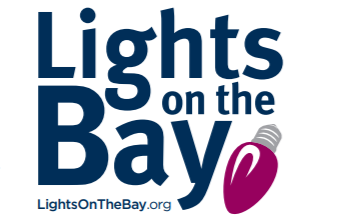NEWS from the LIBRARY OF CONGRESS
Media Contact: Brett Zongker, bzongker@loc.gov
Website: Concerts from the Library of Congress

Spring Programming Announced f
Series to Offer Virtual and In-Person Events, International Artists, World Premieres of Library of Congress Commissions
The Library of Congress will present an exciting 22-event lineup of concerts, lectures, conversations with musicians and engaging educational programming in a packed spring season launching March 4. Featuring classical music, jazz and dance events, the series will offer both virtual and in-person programs.
New American music is a special focus, with concerts showcasing a diverse and wide-ranging group of youn
Consistent with social distancing and safety protocols in response to the COVID-19 pandemic, concerts offered in March are being presented entirely in an online format. Events will be made available at 8 p.m. ET on the scheduled premiere dates on loc.gov/concerts and the Library’s YouTube channel unless otherwise noted.
Each program is available to viewers as a unique, content-rich
Spring highlights for both virtual and in-person programs will include a concert by fortepianist Ronald Brautig
Dates beyond March of the season will be announced on a month-to-month basis. In-person events are expected to resume in April, subject to COVID-19 protocols. Patrons can find information about the Concerts from the Library of Congress series at loc.gov/concerts and are also encouraged to subscribe to the Concerts and Performing Arts Events email alerts at loc.gov/subscribe/#music to receive updates on the coming month’s events. The Concerts from the Library of Congress LibGuide provides “best-of” selections of past lectures, concerts, conversations and collection items on a variety of musical topics.
MARCH 2022 PROGRAMS
Each program will be accessible at 8 p.m. ET unless otherwise noted.
Friday, March 4
JUSTIN TAYLOR, harpsichord
“Fandango,” an impressive concert from the young French-American harpsichordist Justin Taylor, pairs sonatas by 18th-century masters Domenico Scarlatti and his admirer and disciple Antonio Soler. Their brilliant, often flamboyantly dramatic sonatas suggest the world of opera and convey the cosmopolitanism of the major music centers they worked in, including the royal courts of Portugal’s Maria Barbara and the grand Escorial monastery and palace in Spain.
Friday, March 11
NETHERLANDS CHAMBER CHOIR
Dance Company Nanine Linning
Marijn Rademacher, dance
Peter Dijkstra, chief conductor
Nanine Linning, co-director and choreography
Tido Visser, co-director and concept
Irina Shaposhnikova, costume design
Pink Steenvoorden (Einstein design), light and set design
DI LASSO: “Lagrime di San Pietro”
LIGETI: “Nonsense Madrigals,” selections
Orlando di Lasso’s “Lagrime di San Pietro” (Tears of St. Peter) stands at the summit of Renaissance polyphonic composition. A monument of the choral literature, this somber tapestry of 20 madrigals and a concluding motet tell the story of the betrayal of Jesus Christ by Saint Peter. The Netherlands Chamber Choir’s vision of the work creates a riveting central focus for a dancer in the role of the saint. Tall plexiglass tubes enclose the seven singers, a startlingly apt metaphor evoking isolation and loneliness. In three pieces from György Ligeti’s “Nonsense Madrigals,” the choir attacks Peter with mockery and derision before the climactic final motet. Filmed at the onset of the pandemic, this multidisciplinary presentation reveals di Lasso’s masterwork as starkly relevant today.
This program has been supported by the Dutch Culture USA program of the Netherlands Consulate General in New York.
Wednesday, March 16
CASTALIAN STRING QUARTET
Sini Simonen and Daniel Roberts, violin
Ruth Gibson, viola
Christopher Graves, cello
MOZART Quartet in D minor, K. 421
HENSEL String Quartet in E-flat major
SCHUBERT String Quartet in G major, D. 887
Taking a break from their residency at Oxford University, the Castalians showcase some of the most powerful music for quartet penned by Mozart, Hensel and Schubert. Perhaps the least known work on the program is by Fanny Hensel, Felix Mendelssohn’s sister. Her only work for quartet will leave you wanting to explore more music by this composer whose star is finally on the rise, her talent as a prolific composer at last being recognized in recent years.
Part of the Library’s celebration marking the 225th anniversary of Schubert’s birth.
Friday, March 18
Mark Padmore, tenor
Mitsuko Uchida, piano
SCHUBERT “Winterreise,” D.
Mark Padmore and Mitsuko Uchida forge a partnership of formidable artistry and rare insight in this performance of Franz Schubert’s “Winterreise.” One of a number of masterworks written near the end of the composer’s life, including his string quintet D. 956 and the three late piano sonatas, the 24-song cycle traces the harrowing winter journey of a wanderer confronting an existential abyss of loneliness and longing for a lost love. Wilhelm Müller’s poems become an anguished soliloquy, a monodrama in which the singer must travel “a road by which no one has ever returned.” In this magisterial reading of the cycle, the enigmatic final song “Der Leiermann” may suggest a faint vision of redemption: perseverance — and the possibility of hope.
Part of a celebration marking the 225th anniversary of Schubert’s birth.
Presented in cooperation with Wigmore Hall.
Friday, March 25
CATALYST QUARTET with IMANI WINDS
Catalyst Quartet
Karla Donehew Perez and Abi Fayette, violin
Paul Laraia, viola, and Karlos Rodriguez, cello
Imani Winds
Brandon Patrick George, flute, and Toyin Spellman-Diaz, oboe
Mark Dover, clarinet, and Monica Ellis, bassoon
Kevin Newton, horn
COLERIDGE-TAYLOR “Fantasies
PRICE “Five Folksongs in Counterpoint”
C.-T. PERKINSON String Quartet no. 1, “Calvary”
J. MONTGOMERY “Sergeant McCauley” (with Imani Winds)
The Catalyst Quartet, one of America’s great string quartets, has been adding new and established works by under-represented voices to the repertoire through commissions and advocacy for over a decade. In a special collaboration, Catalyst Quartet will be joined by the Imani Winds in a performance of Jessie Montgomery’s nonet “Sergeant McCauley.”
About the Music Division
The Music Division at the Library of Congress — formally established in 1897 within the Library’s Jefferson Building upon its completion — traces the origin of its collections to the 13 books on music literature and theory in Thomas Jefferson’s library, purchased by Congress in 1815. Founded in 1925, the “Concerts from the Library of Congress” series is made possible through the generous support of endowments and gifts from private donors.
About the Library of Congress
The Library of Congress is the world’s largest library, offering access to the creative record of the United States — and extensive materials from around the world — both on-site and online. It is the main research arm of the U.S. Congress and the home of the U.S. Copyright Office. Explore collections, reference services and other programs and plan a visit at loc.gov; access the official site for U.S. federal legislative information at congress.gov; and register creative works of authorship at copyright.gov.






